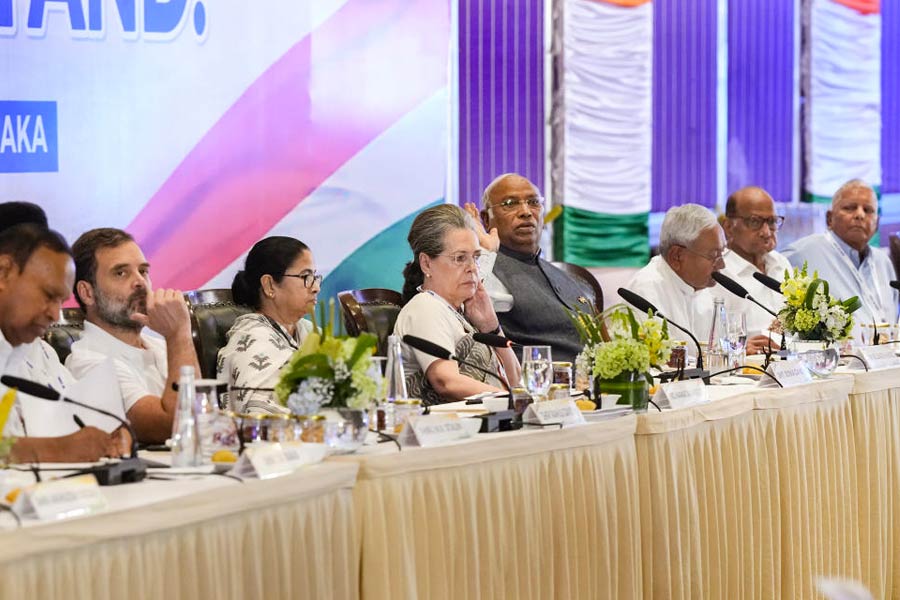Semantics and Indian politics share brotherly ties. That perhaps explains the tizzy in India’s political circles over ‘INDIA’. The Opposition has scored in the field of optics with its chosen acronym to describe the rainbow alliance of 26 parties that will take on Narendra Modi’s electoral juggernaut but the christening is not limited to optics alone: INDIA is also meant to send two important messages to Mr Modi and his Bharatiya Janata Party. First, nationalism, the BJP’s mythical fiefdom, will no longer go unchallenged. Second and perhaps more important is the political will to differentiate between the two forms of competing nationalism. While the BJP basks in a muscular, majoritarian template, parading Hindutva as the chosen substitute for Hinduism — a far more diverse and inclusive faith — the Opposition, seemingly, is keen on challenging the BJP’s narrow rhetoric by upholding pluralism, that foundational, but now withered, vision of the republic. The nobility of the objective notwithstanding, the Opposition is confronted by serious challenges. It has to convince the electorate that INDIA is not, in the prime minister’s words, an alliance of the corrupt but a coalition committed to reclaim the nation’s tryst with inclusive development. There is also the matter of poll arithmetic: many of the alliance partners are regional rivals and carving out a consensus on dividing the electoral turf would be a formidable challenge. Hearteningly, the Opposition has, thus far, chosen to prioritise the big battle over smaller conflicts: the Congress’s change of heart on the Delhi ordinance that brought the Aam Aadmi Party on board in Bengaluru is a case in point. This flexibility — ideological and political — would serve INDIA well. Several other knotty issues, such as a prime ministerial face and an alternative model of welfare, remain to be thrashed out.
The bonhomie in the Opposition camp has forced the BJP to suddenly remember that the National Democratic Alliance has allies as well. This culminated in a conclave of 38 pro-government parties in Delhi. The hint of a strategy to counter a united Opposition was discernible here as well. The BJP could well rely on the localised electoral reach of smaller parties in a bid to mobilise constituencies, especially among the other backward classes, in its favour. How this impacts the BJP’s traditional reliance on making elections a personality-oriented, quasi-presidential contest remains to be seen. All in all, the bugle for the battle of 2024 has been sounded.











